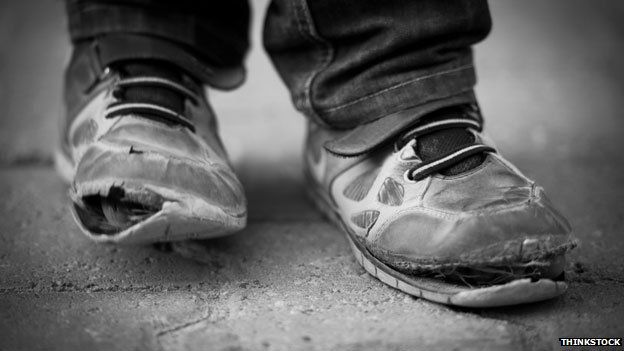Is global poverty a human rights violation?
If we agree with articles 25 and 28 of the UNDHR that everyone has the right to an adequate standard of living and is entitled to a social and international order that guarantees this (and other) rights, severe, absolute global poverty can only be seen as a human rights violation.
The violation derives not only from certain agents causing poverty but also from the failure to deal effectively with the elimination of poverty when in a position to do so. It is necessary to go beyond the socioeconomic vs. political rights discussion, looking instead at the conditions under which severe poverty manifests a human rights violation and looking at the agents responsible for it, if any. The distinction between acts and omissions, positive and negative duties, needs to be questioned and both sides bridged for a more fruitful understanding of global poverty as a human rights violation.
Let us first look at the side of the violation that occurs when severe poverty is caused. According to this view, poverty is a condition that is brought about by the conduct of other people, and it is this conduct that entails the violation. Thomas Pogge has eloquently exposed some of the mechanisms through which the global economic order causes poverty such as briberies, subsidies to Western production (especially agriculture), intellectual property rights (especially in the field of pharmaceutics) or the international resource and borrowing privileges.
These ‘non-indigenous’ causes of poverty derive from the institutions that we have built in the world, and are directly violating the rights of the poor. However, there are some problems with this view: it simplifies the operation of causation in a complex global institutional order and it plays down any possible endogenous factors of poverty.
It is important to avoid dichotomous and fundamentally opposed views of causation such as Pogge’s or that of the Purely Domestic Poverty Thesis, but at the same time it would be naive to overlook how certain aspects of the international system violate human rights by impeding the fulfilment of an adequate standard of living and the realisation of a social and international order that guarantees this right.
But the violation of human rights through global severe poverty is not just a human evil but also the product of unmet humanitarian obligation. Recognising the impossibility to draw an exact line between acts and omissions does not mean that that the distinction cannot be applied to any piece of human conduct.
The omissions discourse does not have to be seen as an excuse to deny responsibility by affluent countries but rather as an active violation of human rights to the extent that agents are failing to alleviate global severe poverty that has empirically been proven to be avoidable.The false dichotomy between acts and omissions needs to bridged: both operate as violations of human rights, one for causing poverty and the other for failing to alleviate it.
The use of the term violation does not necessarily entail a loosening of semantics but taking a strong stance against what is an absolute, relative, impervious, pervasive and avoidable global poverty with a multiplicity of causes and in which institutions act as dialectical forces of harm and betterment.
The term ‘violation’ is not seen to rely on the notion of compensation in a Poggean sense, but rather in the twofold strategy of ‘stop harming, start alleviating’. The positive duty to assistance and the negative duty not to harm are not incompatible but mutually constituting, and it is the failure to fulfil both that truly constituted a violation of human rights.
As long as articles 25 and 28 of the UNDHR are not met, and as much as it hurts many political philosophers and the WTO, global poverty can only be conceptualised as a violation of human rights. Appeals to the progressive improvement of the global economic order or to its ‘noble intentions’ are not sufficient (and highly questionable), and violations will be incurred as long as we fail to alleviate and continue harming.
The mixture of empirical social science and political philosophy becomes inevitable when dealing with global poverty, and the language of human rights violations is the most appropriate to challenge the economic vs. political rights dichotomy and to lift severe poverty from the status of a social problem to that of an unavoidable imperative.
Although the causes (and originators) of poverty are elusive, controversial and challenging, that does not mean that they do not exist, as Pogge has shown. But actions are not the only reason for human rights violations, are omissions also count. The categorisation of poverty as a violation of human rights has to be seen as a move towards bringing new mechanisms to bear on the elimination of poverty, and it is to this goal that we should continue to aim for.


Comentarios
Publicar un comentario